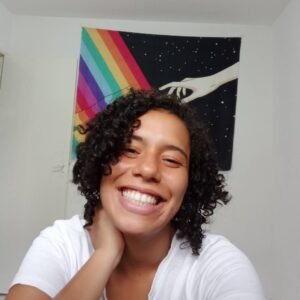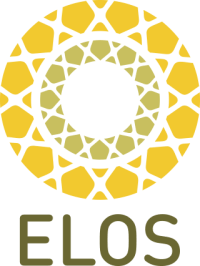This article was translated by Izadora Silva, a volunteer participant in the Translation Community at Instituto Elos.
The origin of the word utopia is Greek and means “no place”. In other words, a place that does not exist. When I see this definition, I remember the time when my dream was to transform the world. I wanted to be a person who could make history. I thought about it for years, even though I’ve never mentioned it to anyone. Today I think differently. Why did I change my mind, did that dream no longer exist? There, deep down, it still exists, but today it’s different. It transmuted.
I understood that only through collective utopia can become reality.
When we talk about diversity, inclusion, human rights, equality and other related topics, utopia is the idealization of a world in which these values are an intrinsic part of society.
A fair world, where all people are valued and respected regardless of race, gender, sexual orientation, disability, religion or any other characteristic.
It is from this idea that we can think of a better future and work collectively to achieve it.
The community is an important bond in the fight for inclusion and equality. Through dialogue and cooperation, it is possible to promote initiatives that allow the opening and expansion of discussions on important and fundamental topics to guarantee a more fair and equal society.
These communities can be formed by NGOs, collectives and companies, which come together for a common cause. The role of these organizations is fundamental because they can give visibility to issues related to diversity and create commitment in society in favor of these guidelines.
Each person has a fundamental role to play, either through daily attitudes, or through commitment in social movements, private and public organizations, among other places. Yes, it’s hard work, but it’s worth it, as it translates into a better world for all people.
As for diversity, inclusion and belonging. We can conceptualize it as follows: diversity is the representation of different people, inclusion is ensuring that all people have opportunities, and belonging is guarantee that all people feel safe and valued. But, how to promote diversity, inclusion and belonging in companies, through laws, among other places and actions?
Diversity and inclusion must be seen as an advantage and wealth.
In order to promote and adopt real changes in places, it is necessary for decision-makers to use literacy, that is, training, lectures and mentoring, and through informative manuals. As well as representative participation in management positions, opportunities, and fair remuneration.
A welcoming organizational culture is one that values and respects people, offering a safe and comfortable work environment.
When people feel welcomed, they tend to be more committed and productive, in addition to staying longer in those places. A specific department to deal with guidelines related to diversity and inclusion is essential to promote these guidelines. These are some ways to promote diversity and inclusion.
It is necessary that people are open to dialogue and willing to learn from differences. There must also be a culture of empathy and respect for differences, understanding that each person is unique and has their particularities. Conflicts are inevitable, but there are ways to deal with them consciously and constructively.
The world will be a much better place if we manage to live in a fair and truly egalitarian society. Unfortunately, the reality is different, and prejudice and discrimination still affect many people in the world. The search for a fairer world is a commitment that must be shared by all people and will only be possible with actions and concrete measures that promote inclusion and equality.
The initiative through the community to break with labels, prejudices and fear opens up opportunities for us to build our utopias together for a fair, prosperous and solidary world for all people.
Phew, glad utopias exist.
 This article is from Jully Neves, GSA Warrior 2017. She is from Recife, capital of Pernambuco State, in Northeastern Brazil. She practices archery and Chinese boxing, passionate about beach and mush. She is a black, LGBTQI+, neuroatypical, peripheral and northeastern woman. She has a bachelor’s degree in administration, Human Rights and a certification in Agile Methodologies. She works as a consultant in Diversity and Inclusion and management of social projects.She is GSA Warrior 2017. Translated by Izadora Silva.
This article is from Jully Neves, GSA Warrior 2017. She is from Recife, capital of Pernambuco State, in Northeastern Brazil. She practices archery and Chinese boxing, passionate about beach and mush. She is a black, LGBTQI+, neuroatypical, peripheral and northeastern woman. She has a bachelor’s degree in administration, Human Rights and a certification in Agile Methodologies. She works as a consultant in Diversity and Inclusion and management of social projects.She is GSA Warrior 2017. Translated by Izadora Silva.

